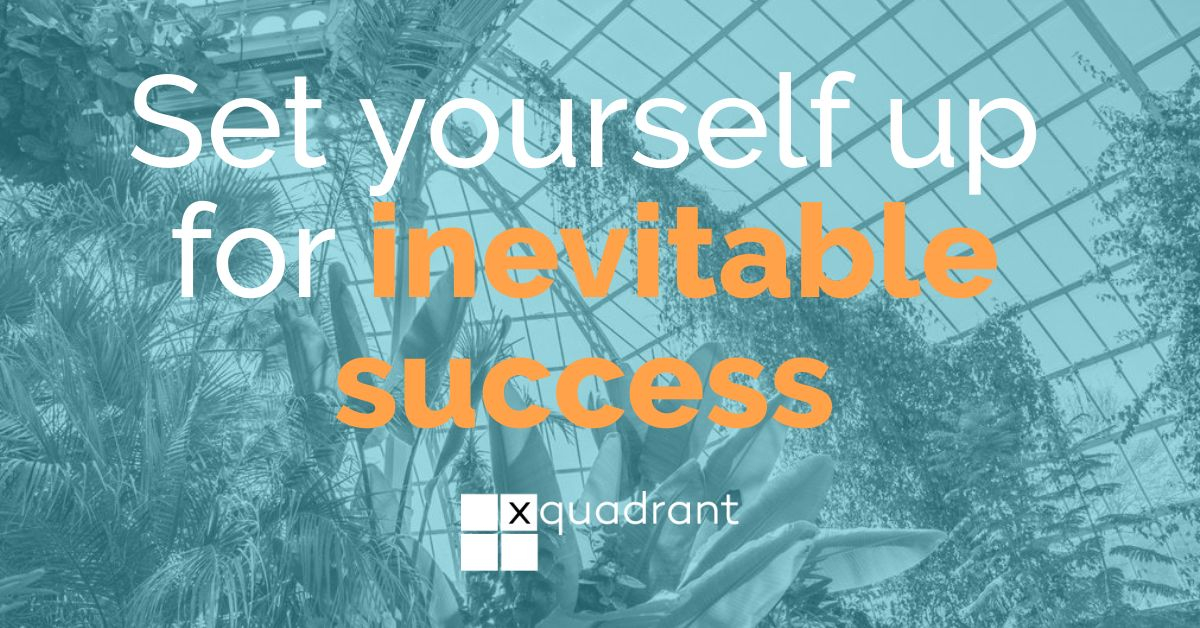"I'm a do-er and a fixer; I love talking about my work but I hate self-promotion. So how I do I talk about myself to my new organisation?"
Two extremely competent and successful clients, both with new and more visible executive roles, asked me pretty much the same question this week.
So here are three principles to help you to present yourself in a powerful and authentic way, along with a simple template to make it easy to do just that.
Principle 1: Think service instead of self-promotion
Self-promotion sounds pretty self-centred and might be difficult for you to embrace. But turn the tables and ask instead:
- How can I best serve these people?
- What do my colleagues or team most need to know?
- How do I want them to feel?
- What do they need to do?
Principle 2: Turn up the dial on your self-expression
More...
It's easy to hide behind corporate jargon: "What you need to know about me as a leader is that I'm committed to excellence, collaboration, innovation, integrity and putting our customers first."
That may be true but it's nothing memorable; indeed, it's great fodder for pretty much any corporate values poster.
Instead, get personal. Dig deep and find a story that truly shaped who you are.
For example, my own commitment to helping leaders maximise their impact is born from my experience of growing up with a severely mentally handicapped sister and realising that if we have opportunities given to us then we should really make the most of them.
When I tell this story, people know it's personal, it's meaningful and they're getting a raw glimpse into the real me.
"I'm a do-er and a fixer; I love talking about my work but I hate self-promotion. So how I do I talk about myself to my new organisation?"
Principle 3: If you're not moved yourself, you won't move others
What do you stand for that's different from the norm?
As we explored the subject my client said, "my sector is tough and self-centred but I can't stand that; I'm for empathy and teamwork."
When she said that, the conviction in her voice gave me goosebumps. We'd tapped into something that truly defined her, and you could feel it.
Putting it together
Now you've done the deeper work of drawing out what really matters to you, how can you put this together so that it lands? There are many ways of course, but here's a simple template:
"What you might know about me is..."
What are three career accomplishments you're particularly proud of? What are your "CV highlights"? It's OK to mention those; it's not bragging if you've done it!
"If you've worked with me, you've probably discovered that..."
What's your secret sauce - your distinctive way of operating that your colleagues find out about you sooner or later? Talk about your strengths but also admit their dark sides. "Most people who work with me say that I'm relentless. It gets results though I know it can be wearing and I do try to cut my team some slack!"
"But what most people don't know about me is..."
And then - get personal. Tell your deeper story, a foundational experience, explain a core conviction and where it comes from. Show them your soul. Yes, it's edgy. It's bold. It's... leadership.
Introducing yourself: a 'worked example'
So this is what it might sound like for me. This is raw, unedited and unpolished - but hopefully gives you a sense of what 'authentic' sounds like in my case.
"What you might already know about me is that I came top of my year at Oxford, became the youngest-ever Partner in a strategy consultancy, and was handpicked for a team set up by Cisco's CEO to catalyse board-level partnerships. You might know that I've worked on strategy and transformation for C-Suite leaders in the world's top companies for over 20 years and now count some of the tech sector's most impressive CEOs as my personal clients.
If you've worked with me, you might have discovered I have a gift for strategic thinking and making sense of complexity; but that I get bored easily and I need a team to implement my ideas over the long-run.
But what most people don't know about me is this. Despite what looks like an impressive track record, what I've done doesn't feel particularly special and I'm hungry for a greater impact on the world. My sister is severely mentally handicapped and my mother died at 59 years old, and I'm acutely aware of the fact that when we're given opportunities and resources we owe it to the world to make it a better place. That's why the word 'impact' is so important to me; because deep down I know I've not yet made the difference that I know I can."
Over to you.



